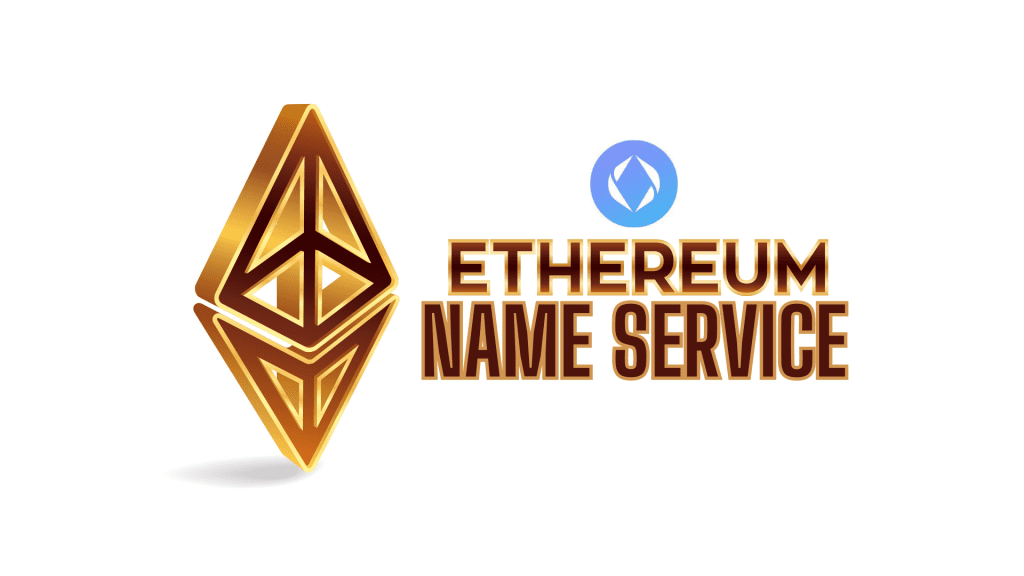The dawn of the decentralized web, or Web3, has brought forward numerous challenges, among which lies the complexity of long and unfriendly crypto addresses. An average user could find these difficult to comprehend or even use. That’s where the Ethereum Name Service (ENS) comes to the rescue.
Inspired by the technological advancements of the internet’s early days, ENS simplifies crypto addresses into human-readable formats. This article will provide a dive into this revolutionary technology, learn how it operates, and discover the benefits it brings to the world of Web3.
What is ENS?


An ENS domain name provides an easy-to-remember alias for complex Ethereum addresses, similar to how domain names work on the internet. But there’s more to it. ENS introduces a novel approach to managing domains and offers a decentralized way to control assets within the Ethereum network.
Through ENS registration, anyone can acquire an ENS name, which can represent not only wallet addresses but also decentralized websites, content hashes, and more. This versatile and flexible service has opened new doors for creativity and efficiency within the Ethereum network. In essence, ENS is reshaping our interaction with blockchain, making it more intuitive and user-friendly.
How the Ethereum Name Service Works?
The core functionality of ENS involves the registry and registrants. The “registry” oversees the allocation of domains, and a domain owner, called a “registrant,” can register a domain through the ENS system.
“Registrars” are smart contracts within ENS that control subdomain names, and they can be altered or transferred as needed. A registrant can even reclaim a domain name, resetting the ownership back to the original registrar.
This registry stores the owner of a domain, its resolver, and other essential details. Think of it as a master list for all ENS names. The ENS resolver is responsible for translating human-readable names into machine-understandable addresses. It acts as the bridge between your ENS name and the associated Ethereum address, making communication seamless.
In a nutshell, ENS simplifies complex tasks, offering an intuitive interface that makes dealing with Ethereum addresses as straightforward as sending an email. It’s a robust, decentralized, and versatile system that’s paving the way for a more accessible and secure blockchain experience.
Features of ENS


The Ethereum Name Service (ENS) isn’t just a novel concept; it’s a groundbreaking technology packed with features that make it a vital part of the Ethereum ecosystem. Let’s explore some of the key features:
- Decentralized Control: Unlike traditional naming systems, ENS operates without central authority. This decentralization ensures greater security and gives users complete control over their ENS names.
- Multi-Functionality: ENS is not restricted to Ethereum addresses alone. It can also represent other cryptocurrencies, content hashes, and decentralized websites. This multi-functionality adds layers of utility to the system.
- Secure and Trustless: Built on the Ethereum blockchain, ENS offers robust security features. It operates in a trustless manner, meaning you don’t need to trust third parties. Your ENS names are as secure as your Ethereum wallet.
- Integration with Wallets: Many popular Ethereum wallets have integrated ENS, allowing users to send and receive funds using simple names. This integration ensures a user-friendly experience.
- Time-Based Renting System: ENS domain names can be rented for a specific period, adding flexibility to the ownership model. This time-based renting system ensures that unused names are released back into availability.
- Wide Adoption: ENS has become widely adopted across various Ethereum-based applications and services. Its universal appeal demonstrates its value and functionality within the network.
- Interoperable and Extensible: Designed for broad functionality, ENS is compatible with a wide array of applications and platforms, setting a new standard for versatility and interoperability.
ENS vs. DNS
Comparing ENS with the traditional Domain Name System (DNS) gives a clearer understanding of the evolution of naming systems. Here’s a comparison table to highlight the differences and similarities:
| Feature | ENS (Ethereum Name Service) | DNS (Domain Name System) |
|---|---|---|
| Control | Decentralized | Centralized |
| Security | High (Blockchain-based) | Variable |
| Functionality | Multi-Purpose | Primarily Web Addresses |
| Management | User-Controlled | Registrar-Controlled |
| Integration | Wallets, DApps | Web Browsers |
| Extensibility | High | Moderate |
| Adoption | Blockchain Ecosystem | Global Internet |
| Renting System | Time-Based | Typically Annual Subscription |
While the traditional Domain Name System (DNS) has served us well, ENS offers a new paradigm. ENS is decentralized, meaning no single entity controls it. This contrasts with DNS, where central servers can become points of failure or control. ENS also adds a layer of security that DNS lacks, an essential consideration in today’s digital age.
How to Get an ENS Domain?


Acquiring an ENS domain has become a streamlined and accessible process, even for those new to the blockchain world. It’s a journey that allows you to be part of the Ethereum community, and it all starts with a few simple steps:
- Choose a Name: Select a name that represents your Ethereum address.
- ENS Register: Use a supported ENS wallet to register your chosen name such as MetaMask.
- Pay the ENS Fees: Complete the payment using Ethereum plus the fees associated.
- Link to Your Address: Your new ENS domain is now linked to your Ethereum address.
It’s that easy! ENS domain registration opens up a world of opportunities in the Ethereum ecosystem.
Now, you might wonder where to purchase ENS tokens to cover the associated fees or even invest in them. Various exchanges offer ENS tokens, and they can be broadly categorized into two groups:
- Centralized Exchanges: These include well-known platforms like Binance, Okex, OpenSea, and ByBit. They offer a more traditional trading experience and are often the go-to choice for many investors.
- Decentralized Exchanges: If you prefer a decentralized trading environment, platforms such as Uniswap, SushiSwap, and 1Inch offer a unique experience. They give you more control and align with the decentralized ethos of blockchain technology.
But the easiest way to buy an Ethereum Name Service Domain is go straight to their website where users can search and purchase their desired domains on app.ens.domains.
ENS DAO, Foundation, and Token Distribution
The Ethereum Name Service (ENS) operates under a decentralized governance model, ensuring that it truly embodies the ethos of blockchain. The ENS DAO (Decentralized Autonomous Organization) and Foundation play critical roles in this decentralized governance.
ENS DAO is the heart of decision-making. It consists of community members who hold ENS tokens, actively participating in proposing and voting on various aspects related to the ENS. The ENS DAO empowers the community, fostering a truly decentralized environment.
ENS Foundation focuses on development, research, and education. By advancing and supporting ENS-related projects, the Foundation ensures ongoing innovation and growth.
Token Distribution has been a major event in ENS, with tokens distributed to those who had registered .ETH domains. This distribution allows more people to engage with the governance, reinforcing the decentralized nature of the system.
- Community treasury: 50%
- Airdrop to .eth holders: 25%
- ENS contributors: 25%
Furthermore, the foundation, incorporated in the Cayman Islands, provides legal support to DAO participants, with directors like Nick Johnson, Brantly Millegan, and Kevin Gaspar at the helm.
Benefits of Using ENS


Why should you consider using ENS in your projects? The reasons are manifold:
➢ Ease of Use
ENS simplifies the process of sending and receiving crypto, enabling users to transact using a domain name like “yourname.eth” instead of a long string of characters. This ease of use is a game-changer for many users, especially those new to the crypto space.
➢ Security
Unlike the traditional DNS system that relies on a central server, ENS claims that its decentralized nature ensures no one can hack or remove data. This provides enhanced security for users and their data.
➢ Transparent Interaction
With ENS, users can differentiate their wallets from others, ensuring more transparent interactions. This increases trust and understanding among users in the Ethereum blockchain ecosystem.
➢ Cost-Effective
Obtaining an ENS domain is quite affordable, with prices starting as low as $5 before Ethereum transaction fees.
Ethereum Name Service vs. Unstoppable Domains
ENS and Unstoppable Domains are two leading solutions in the decentralized naming space. While both offer similar functions, ENS focuses specifically on the Ethereum network, whereas Unstoppable Domains extends across various blockchains. Your choice between them depends on your specific needs and preferences.
| Feature | Ethereum Name Service | Unstoppable Domains |
|---|---|---|
| Decentralization | Fully Decentralized | Partially Decentralized |
| Supported Cryptocurrencies | Multiple | Limited |
| Security | High | Moderate |
| Price | Variable | Fixed |
| Ease of Use | High | Moderate |
While both services offer decentralized domain solutions, ENS provides more extensive support for different cryptocurrencies and has a fully decentralized governance structure. Unstoppable Domains, on the other hand, may offer a fixed pricing model that might appeal to some users.
Conclusion
The Ethereum Name Service is more than a convenient feature; it’s a paradigm shift in how we interact with the blockchain world. From ENS domain names to the security they offer, ENS is making waves in the industry. Whether you’re a developer, business owner, or simply a tech enthusiast, the benefits of ENS are there for all to see.
It’s time to explore, invest, and be part of this exciting journey. The future of ENS looks promising, and the opportunity to be part of it awaits you.









